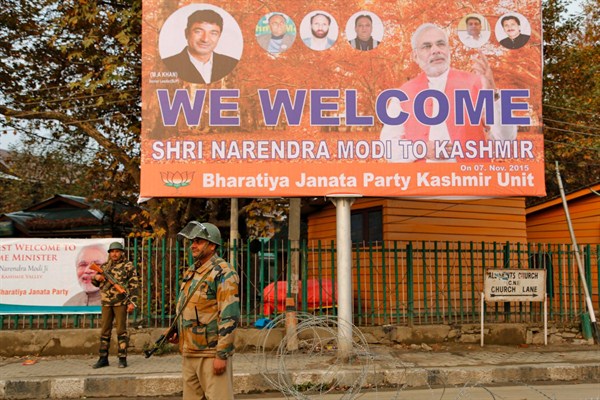Indian Prime Minister Narendra Modi’s visit to Kashmir earlier this month brought steel barricades, razor wire, a curfew and other tight security measures to the contested territory on India and Pakistan’s border as Pakistan-backed separatists took to the streets in protest. It was just the latest sign of how Kashmir has re-emerged as the most critical issue in India-Pakistan relations.
Pakistani Prime Minister Nawaz Sharif’s visit to Washington last month offered further proof. With an agenda otherwise dominated by U.S. security concerns vis-a-vis Afghanistan, Sharif ensured that the long-running Kashmir conflict remained a priority. In a meeting with senior U.S. senators, Sharif said the dispute needed third-party intervention and solicited America’s help as a mediator. Then in a speech at the U.S. Institute of Peace, Sharif insisted that resolving Kashmir was key to regional stability. This push came on the heels of Pakistan putting Kashmir center stage at the U.N. General Assembly, a move that had aroused a strong Indian reaction.
Pakistan’s renewed campaign to internationalize the conflict is a significant departure from its decade-long Kashmir policy of deliberately downplaying the issue at the United Nations in favor of bilateral dialogue with India, which is New Delhi’s preferred approach, while also putting Kashmir on the back burner in favor of dialogue on other outstanding matters. As far back as January, however, reports emerged that Pakistan would raise the international temperature on Kashmir and return to its traditional demand of a U.N.-sponsored plebiscite deciding which country Kashmir would accede to.

